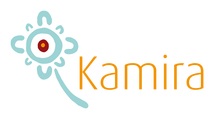Respectful Workplaces: Workshop Series 2026
Build cultural safety into every part of your workplace
A 7-part workshop series, starting early next year, designed to move organisations from intent to action on Aboriginal cultural safety.
Why most efforts fail
Good intentions don’t stop Aboriginal staff from leaving.
Policies alone don’t guarantee cultural safety.
One-off events don’t build capability.
Real change happens when leaders and staff have the clarity, confidence, and consistency to act every day.
What makes this series different
The Respectful Workplaces Workshop Series is a 7-part online program starting early 2026.
It gives leaders and organisations a practical framework to embed cultural safety across policies, systems, and daily practice.
This isn’t theory. It’s applied, interactive, and designed to tackle the barriers that keep workplaces from retaining and supporting Aboriginal staff.
No tick-boxes. No scatter-gun activities. A system you can use every day.
The 2026 series starts early next year — secure your organisation’s place today.
The 7 projects we’ll tackle together
The series is built around the 7 essential projects of the Respectful Workplaces program:
Language Matters
The language you use to speak with, and about, Aboriginal people matters. When your people don’t know what term to use they avoid the conversation altogether. When you codify your language choice you empower your people to have confidence in their conversations.
A Simple and Compelling Rationale
When the reasons to support Aboriginal employment aren’t clear your people can’t be on board. When you have a simple and compelling rationale for Aboriginal employment your people will be on board.
Community Profile
Without facts and education, people tend to make assumptions about Aboriginal people and communities based on their own direct experience. When you map the relevant Aboriginal communities, you can develop an understanding based on facts and use this information to develop key relationships and to benchmark Aboriginal employment goals.
The Question
The way you frame and ask if a staff member or client is an Aboriginal or Torres Strait Islander person can build or destroy trust.When you ask ‘the question’ in the right way at the right time, you’ll build trust and have accurate data to set and track your Aboriginal employment goals.
Workforce Aboriginal Cultural Capability Plan
When your staff have low levels of cultural capability, your workplace is a risk to the health and safety of your Aboriginal staff and clients. When you have a clear plan to improve Aboriginal cultural capability, your workforce will learn.
Welcomes to Country and Acknowledgements of Country
Rising community expectations means Welcomes to Country and Acknowledgements of Country are expected in today’s workplaces. When you apply Acknowledgements and Welcomes in the right way at the right time in line with protocols, your reputation soars.
Workplace Signals
Workplaces have not always welcomed or respected Aboriginal people. This means we’re always looking for signals to answer the question: Are we welcome here? When you standardise and codify your workplace signals everyone knows where you stand and what they can expect.
How it works
Format: Online (Zoom)
Structure: 7 interactive workshops, each focused on one project
Timing: Starting early next year — dates to be confirmed
Approach: Practical, applied, results-focused. Designed to fit real organisational contexts.
Who it’s for
Leaders and organisations who want to:
Retain Aboriginal staff and reduce turnover
Strengthen credibility with Aboriginal communities
Lead workplaces where cultural safety is built in, not bolted on
Trusted by organisations across community services and not-for-profits
What others are saying
“I definitely recommend Lindsay and Blakworks to any employer looking to make their environment a culturally safe place for Aboriginal people.
If you really want to shift the way the organisation works with Aboriginal communities to foster relationships with local Aboriginal organisations, then Lindsay is the go-to person for you.
It’s been an absolute delight to work with Lindsay over the last few months, and I really look forward to an ongoing relationship with Blakworks.”
- Jenni Allan, CEO, Adssi Ltd (2016)
“Personally, I valued the deeper relationships with my Aboriginal staff that developed as a direct result of Fairhaven taking a stand and making change in the Aboriginal employment space.
I learnt so much from their personal stories and I know this would not have happened if we didn't do the work to create a workplace where they felt they would be heard.”
- Monique Cardon, CEO, Fairhaven (September 2018)
Leaders like Jenni and Monique have seen what’s possible. Your organisation can too.
The change you’ll see
By the end of the series, you and your team will:
Speak with clarity and consistency about Aboriginal employment
Act with confidence as leaders, without second-guessing
Retain Aboriginal staff because safety is built into systems, not left to chance
Earn trust inside your teams, and credibility with the communities you serve
A real-world success story
“Working with Blakworks gave me the framework I needed. Doing the work transformed me and my team.”
— Cate Hewett, CEO, Kamira
When Cate began, she was frustrated. Staff weren’t on board, and she faced questions she couldn’t answer.
Through the Respectful Workplaces program, Kamira built:
A shared understanding of why Aboriginal employment matters
Consistency in language and policies
The confidence to lead cultural safety as part of daily practice
This meant Cate could lead with clarity, her staff knew what was expected, and Kamira was a stronger, more respectful workplace.
Read the full Kamira success story
Ready to bring these results to your workplace?
“The organisation itself is now much safer culturally for Aboriginal people.”
- Colin Henson, People and Culture Manager, Adssi Ltd
“The most valuable part for me was identifying quick wins that will start to see change.”
- Kailah Larsen, Organisational Development Specialist, Central Coast Council, April 2019














